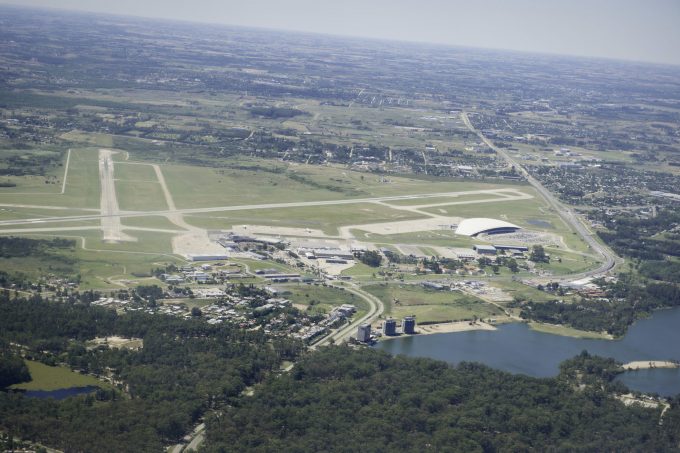Montevideo Airport eyes growing role for LatAm pharma distribution
Latin America Cargo City (LACC), at Montevideo Carrasco International Airport, is set to ramp up its ...

Covid put a dent in aviation growth at Montevideo’s Carrasco International Airport, but it has not stopped the momentum of its free zone.
Leveraging its experience in pharmaceuticals traffic, now it is broadening its scope in a drive to establish itself as a multimodal distribution hub for South America.
MVD Free Airport, as it was known until recently, was an early adopter of the CEIV concept and a founding member of the Pharma Aero group, a proactive stance that, combined with its status as Latin America’s sole free trade zone inside an airport, has led to thriving pharma traffic.
This in turn saw the opening of a second dedicated pharma facility in October that doubled the airport’s capacity for this cargo.
Its credentials positioned MVD to play a key role in the distribution of Covid-19 vaccines in Uruguay. To reduce time and risk, it was used to store, prepare and distribute doses directly to the vaccination centres around the country. This allowed vaccinations in the most distant cities just ten hours after the vaccines had arrived at the airport.
With all key players involved – including vaccine producer, government agencies and final-mile distribution – it was a multimodal effort far beyond air cargo and warehousing. Bruno Guella, MVD MD, pointed out that pharmaceutical firms often sent product to Montevideo by sea, with the containers broken down and shipments distributed over Latin America, using air as well as road transport.
From there it was a relatively small step to broaden the concept and invite players on site that do not perform logistics functions. For instance, one of the large pharma clients relayed requests from its service providers, such as packaging specialists, to be located on airport as well, Mr Guella reported.
“We’re creating an environment and allowing synergies,” he said.
To reflect its broader and multimodal nature, MVD has rebranded as Latin America Cargo City (LACC). A physical manifestation of this is the expansion of the free zone by 80,000 sq metres in the first stage.
New space will certainly be needed. Pharma business keeps growing, British pharma giant GlaxoSmithKline is setting up a regional distribution centre at LACC and other large players have similar plans, Mr Guella confirmed. The pharma building that opened in October is already full, with commitments from clients, so construction of a third facility is expected later this year with a view to completion in Q1 23, he revealed.
He also sees strong potential for growth in international e-commerce, which usually requires sizable warehouses. Currently there are two companies that have set up fulfilment centres at the airport. They receive imports by ocean carrier and ship products to consumers in the region. LACC has worked with the postal services of Uruguay and Brazil to validate a solution to move e-commerce into Brazil, the region’s largest market.
“We’re talking with a few companies to ramp up this operation,” Mr Guella said.
A fledgling operation that requires less space is the distribution of medical cannabis. National legislation in Uruguay permits receiving products containing THC in large lots, which opened the door for international distribution from the free zone. The cannabis is stored at the airport and dispatched to individual patients upon receipt of a doctor’s prescription.
The growth of the free zone’s business has not been hampered by the loss of lift after the suspension of international passenger flights, he said, noting that cargo flights had kept operating through the pandemic.
“As long as the passenger airlines keep increasing frequency, that’s good news for us, but the belly network is not vital,” he commented.
This shows the importance of freighter operations, but it is also a reflection of the fact that the old MVD has been something of a multimodal operation all along. The LACC identity takes this a step further and redefines the scope of value-added services on an airport.
Comment on this article